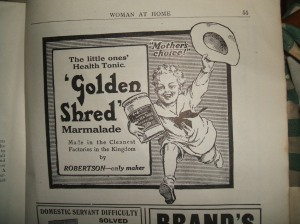There was a pervasive sense that the war was drawing to its end. In what would be its last wartime issue, published on Friday, November 8th, the Stroud News referred to the ‘closing stages of the greatest war in history’ and remarked on the changed World order: ‘Turkey has ceased to be a power for good and evil in Europe…’ (this after five centuries of the Ottoman Empire). It was believed that the ‘flu epidemic might be abating slightly in the Stroud area, however the Star cinema was advertising its opening roof, giving a chance to change the air inside.
Captain Wilfred Selwyn, son of Mr William Selwyn of Toadsmoor (who had lost another son, Colin, in 1917) had been awarded the Distinguished Flying Cross:
On August 8th this officer engaged some 300 enemy troops; having inflicted heavy casualties by bombing he pressed home his attack with machine-gun fire until he himself was shot down. Two days later, leading a patrol of three, he observed an enemy two-seater escorted by eight scouts approaching an area where our troops were assembling for an attack; without hesitation he attacked the two-seater, and, despite the efforts of the scouts to protect it, he shot it down. A courageous officer with cool judgement, he has destroyed three machines and driven down three others out of control.
The News also carried an amusing story about George Emery, of Chalford. Under the headline “Too much jam”, it recounted how he had been summoned under the Food Hoarding Order, being in possession of 72lbs of jam – at a time when the ration was 1lb per month per person. Emery ‘admitted having the jam but denied he was hoarding’. He also maintained that he had been planning to share some of the jam with friends. It turned out that he had been ordering direct from Chivers since 1912 – they were ‘under the impression that he was a grocer’ (hardly surprisingly!). Emery claimed that he had been ignorant of the restriction on jam. He was fined £5, and his jam was confiscated, to be supplied to a real grocer. The newspaper was at pains to emphasise that rationing would continue after the end of the war. Rather fascinated by this story, I looked George Emery up on Ancestry. In 1911, George Alfred Emery was 38, and living on the Minchinhampton side of Chalford in a large house with his wife Esther, their little son Sydney George (who was five), and a servant called Nellie Browning. Emery was a commercial traveller in hardware.
I tried and failed to find a contemporary advertisement for Chivers jams, but came across this one from June 1914 for Golden Shred! Interesting to see it marketed as a ‘health tonic’…
